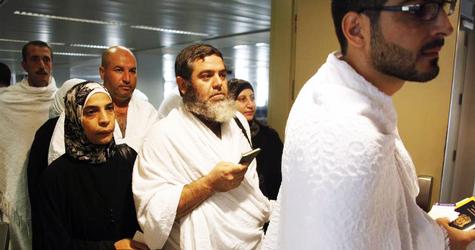 Abha, Oct 22: The Ministry of Interior has sent a strongly-worded circular to all regional governorates asking them to start taking stringent penal action against those Saudis and expatriates who performed Haj without a permit.
Abha, Oct 22: The Ministry of Interior has sent a strongly-worded circular to all regional governorates asking them to start taking stringent penal action against those Saudis and expatriates who performed Haj without a permit.
The violators will be summoned next Sunday to the nearest police stations across the Kingdom in order to take punitive measures against them.
The governorates have been directed to find 120,000 pilgrims who have been finger-printed while performing Haj without a permit and take them to police stations. The security agencies used fingerprinting devices in Makkah and the Holy Sites of Mina and Arafat this year in order to detect Saudis and expatriates without Haj permits.
According to governorate sources, there won’t be any leniency toward violators of the Haj Ministry’s rules in this regard. Saudis have to take a pledge in front of the security authorities, in addition to paying fines. The expatriate violators will be deported and they won’t be allowed to re-enter the Kingdom for 10 years.
Immediately after the completion of Haj rituals, the General Directorate of Passports started sending text messages to sponsors and employers asking them to terminate work contracts with their expatriate employees who performed Haj illegally.
A number of expatriates have confirmed that their employers had received SMS to fire them for performing Haj illegally.
According to the sources, more than 200,000 Saudis and expatriates performed Haj this year without a permit. Last year, the figure was over 600,000.
Prince Khaled Al-Faisal, Emir of Makkah region and Chairman of the Central Haj Committee, and Minister of Haj Dr. Bandar Hajjar warned earlier that expatriates who perform Haj without a permit will be deported and banned for 10 years.
The warning was instrumental in bringing down considerably the number of illegal pilgrims during this year’s Haj.
Saudi drivers who provided transportation facilities for illegal pilgrims would also face penal action.





Comments
Add new comment